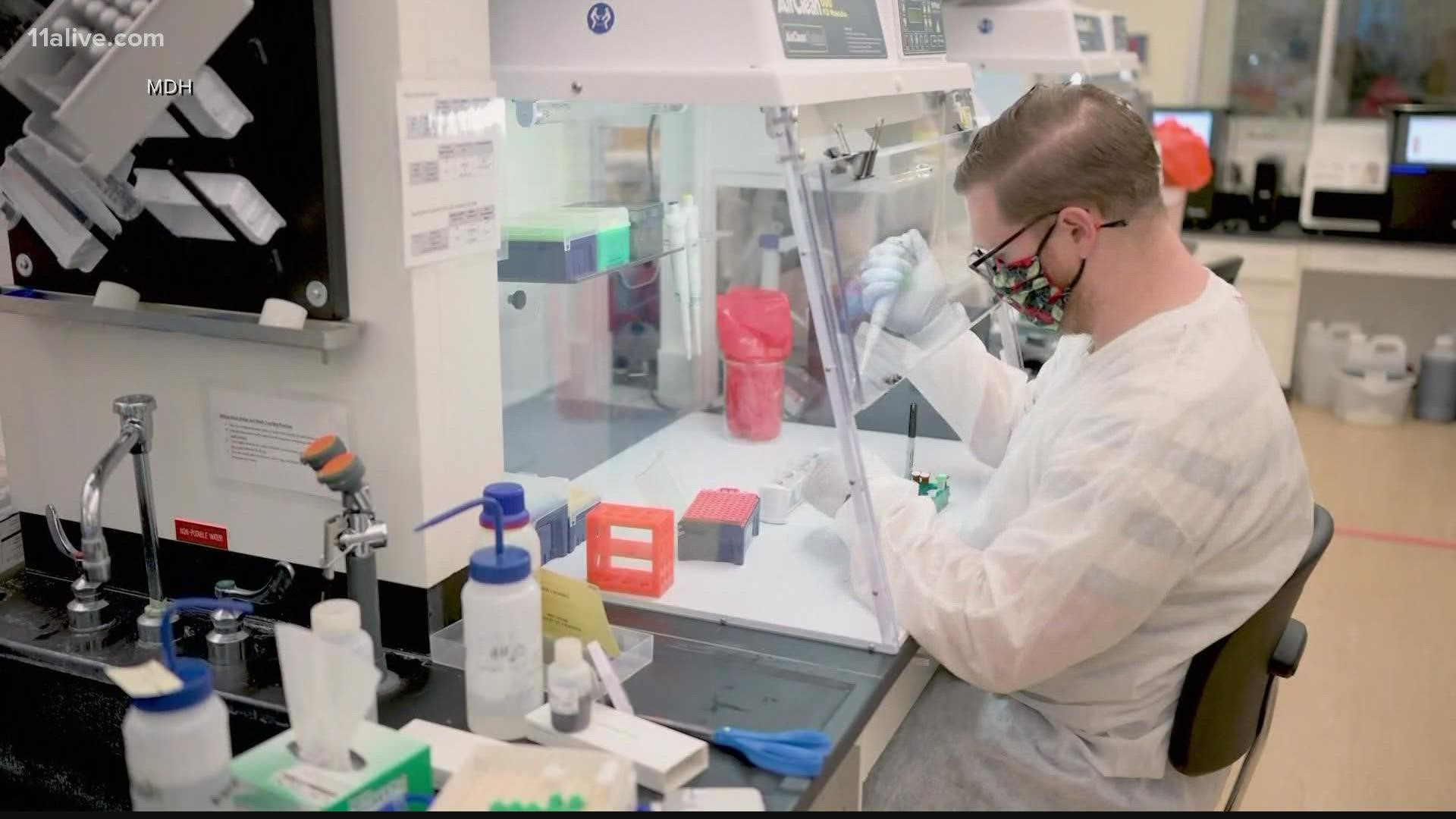ATLANTA — Georgia health officials re-emphasized the importance of vaccinations and boosters after it was announced on Friday night that the omicron variant had been detected in a resident of the state.
Dr. Kathleen Toomey, the Georgia Department of Public Health commissioner, said less than 20% of the state's vaccinated population has received a booster so far, even though they've been widely available for months.
And that 20% comes from a statewide vaccination rate that is already among the lowest in the nation, at 51%.
That suggests as little as 10% of the state has the protection of a full vaccine dose plus booster shot.
“Vaccination and boosters are key to preventing further transmission of COVID-19 and help prevent new variants like Omicron from emerging,” Dr. Toomey said. “Only 51% of Georgians are fully vaccinated and of those individuals less than 20% have received booster doses.”
The state said the resident who had tested positive for the omicron variant was now in New Jersey, but spent two days in Georgia after arriving back from traveling to South Africa, where the variant itself was first detected.
The resident was said to be fully vaccinated and is now in isolation in New Jersey. It's not clear why they traveled on from Georgia to that state after arriving back from South Africa.
The Department of Public Health says that so far, no other cases of omicron have been identified in Georgia.
"Early data from South Africa suggest increased transmissibility of the omicron variant, and scientists in the United States and around the world are urgently examining vaccine effectiveness related to this variant," the state said in a release.
Much remains uncertain about how omicron compares to previous variants, such as delta, beyond the potential for being more transmissible. It's unclear if it causes more severe disease than previous iterations of COVID.
"Preliminary data suggests that there are increasing rates of hospitalization in South Africa, but this may be due to increasing overall numbers of people becoming infected, rather than a result of specific infection with Omicron. There is currently no information to suggest that symptoms associated with Omicron are different from those from other variants," the World Health Organization says.

